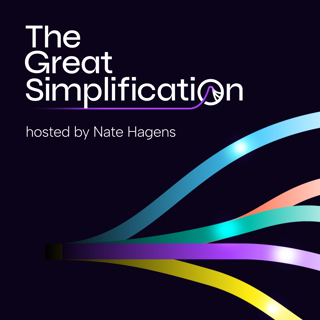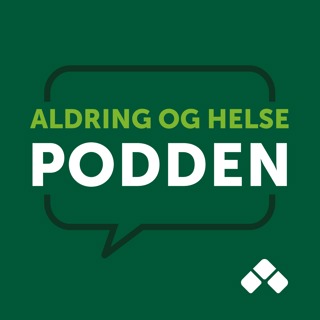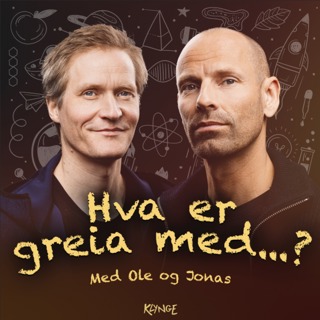
The Ghost of Dopamine Past | Frankly 103
In this week's Frankly, Nate reflects on a moment of unexpected insight during a morning bike ride, which catalyzed a larger meditation on the modern human predicament. This episode explores the neuroscience of dopamine, and offers a reflection on the ways it plays into distraction, technology, and how we interact with the hyperstimulating world around us. What is the "ghost of dopamine past," and how does it shape not only our individual lives, but our collective economic and ecological behavior? Why does the urge to scroll on our phones override the deep calm of watching wildlife? And how might tactics like dopamine fasting or socialization help us rebalance our nervous systems in a culture engineered to constantly produce more? (Recorded July 28th, 2025) Show Notes and More Watch this video episode on YouTube Want to learn the broad overview of The Great Simplification in 30 minutes? Watch our Animated Movie. --- Support The Institute for the Study of Energy and Our Future Join our Substack newsletter Join our Discord channel and connect with other listeners
1 Aug 15min

Nothing Can Stop This Train: Our Financial Predicament From a Systems Perspective with Lyn Alden
Money, debt, and finance shape the lives of everyone globally, including through the policies and actions of national central banks – yet even those who are well-versed in these subjects often miss the full scope of these intricate relationships. For the average person, headlines about mounting government debt and surging interest rates often feel like a confusing and concerning trend. What can we learn from historical cycles, global energy dynamics, and the differing fiscal strategies of nations about the trajectory of the world economy? In today's episode, Nate is joined once more by Lyn Alden for a deeper exploration of the intricate relationships between fiscal dominance, rising levels of debt, and the role of energy in shaping our current financial realities. Lyn explains how a historical analysis shines light on the gaps in economic theories like Keynesianism and Modern Monetary Theory, and what the implications are for our present situation. Using this perspective, they discuss recent trends in Bitcoin, Stablecoins, and Artificial Intelligence – and what further developments in these areas might mean for average people in developed and developing countries alike. How can a deeper understanding of these dynamics prepare us for the economic challenges ahead? What lessons can we draw from past instances when public debt reached unsustainable levels? And as governments attempt to navigate familiar problems with new approaches, how might individuals prepare for the acceleration of this unstoppable train as we head into an increasingly uncertain future? (Conversation recorded on May 28th, 2025) About Lyn Alden: Lyn Alden is an independent analyst and founder of Lyn Alden Investment Strategy with a background in engineering management. Her work provides institutional-level research in plain English, so that both institutional investors and retail investors can benefit from it. Lyn also serves as an independent director on the board of Swan.com and as a general partner at the venture capital firm Ego Death Capital. She is the author of the 2023 best-selling book Broken Money about the past, present, and future of money through the lens of technology. Lyn has a bachelor's degree in electrical engineering and a master's degree in engineering management, with a focus on engineering economics, systems engineering, and financial modeling. She worked for over a decade as an electrical engineer at the Federal Aviation Administration's William J. Hughes Technical Center. Show Notes and More Watch this video episode on YouTube Want to learn the broad overview of The Great Simplification in 30 minutes? Watch our Animated Movie. --- Support The Institute for the Study of Energy and Our Future Join our Substack newsletter Join our Discord channel and connect with other listeners
30 Jul 1h 39min

Towards Individual Wisdom & Restraint
In this Earth Day presentation, recorded earlier this year, Nate offers nine broad paths for individuals to cultivate resilience in an increasingly uncertain and unstable period of human history. From the intellectual & ecological to the spiritual & psychological, these ideas might be considered waypoints for navigating the human predicament, and - in aggregate - help build 'scout teams' of humans working on the upcoming cultural transition away from infinite material expansion. How do we slow down and reject the "hustle culture" that prioritizes gains in efficiency, wealth and consumption over all else? How do we maximize the positive impacts and minimize the negative effects we have on the environment around us? What should we do today to plant the seeds of a future we'd like to see, or would like generations beyond us to see? Changing the future starts with changing our relationship with today. This may first require being more reflective and realistic about our own relationship with the human predicament - and embracing the uncertainty of what's ahead. Perhaps if we're able to redefine 'individual sovereignty' in these hyper individualistic times, towards different attitudes, rituals and behaviors, we can act as seeds of something helpful to the future of humanity and the biosphere. (Recorded April 24th, 2025) Show Notes and More Watch this video episode on YouTube Want to learn the broad overview of The Great Simplification in 30 minutes? Watch our Animated Movie. --- Support The Institute for the Study of Energy and Our Future Join our Substack newsletter Join our Discord channel and connect with other listeners
25 Jul 42min

The Packaging Revolution: Industry's Responsibility & the Innovations That Could Mitigate the Waste Crisis with Wes Carter
Packaging is an unavoidable feature of modern life. It's so embedded in our products and systems that even the most environmentally-minded consumers struggle to avoid it entirely. Yet packaging accounts for nearly half of all plastic waste, contributing to widespread ecological harm and growing threats to human health – highlighting the urgent need for an overhaul of packaging materials and industry practices. So how are some industry leaders reimagining materials, systems, and supply chains in ways that align with the realities of our finite planet? In today's episode, Nate is joined by Wes Carter, president of Atlantic Packaging, to discuss the pressing need for radical transformation in the packaging industry, and how his company has become a leader in sustainable packaging innovation. He emphasizes the role of industry in addressing the plastic pollution crisis, especially given the outsized role of plastic packaging in damaging human and planetary health. He also shares his personal journey towards environmental stewardship and the significance of personal healing and spiritual growth in driving systemic change. How can leaders working within these systems drive outsized change – before ecological limits force change upon us? What could other industries learn from the rapid innovation of packaging systems and technology? Ultimately, does the real transformation go beyond technology and into our expectations and values for what it means to lead fulfilling and meaningful lives beyond a consumer culture built solely on comfort? (Conversation recorded on May 28th, 2025) About Wes Carter: Wes Carter is the founder of A New Earth Project and the third generation leader of Atlantic Packaging. Atlantic is the largest privately-held and most technical resource in packaging in North America, supporting major consumer products packaging needs across virtually every manufacturing vertical. Atlantic specializes in optimizing packaging through technology and comprehensive programs to drive sustainable value. Today, as the president of Atlantic Packaging, Wes is the driving force behind the company's sustainability initiative and its commitment to making real and lasting change. He launched A New Earth Project in January of 2020 to be the inspiration driving this movement into the future. Show Notes and More Watch this video episode on YouTube Want to learn the broad overview of The Great Simplification in 30 minutes? Watch our Animated Movie. --- Support The Institute for the Study of Energy and Our Future Join our Substack newsletter Join our Discord channel and connect with other listeners
23 Jul 1h 39min

This Week's Learnings: Corn Sweat, Coral Bleaching, and the Climate Credit Crunch | Frankly 102
In this week's Frankly, Nate shares a handful of things he's learned in the past few days that have implications for the Great Simplification. Nate covers a wide range of topics in this edition, from the connections between corn sweat and wet bulb temperatures to a timeline of coral reef bleaching events. Our culture is marked by information overload, which has been expanded intensely by technology. This makes it difficult to absorb the data, narratives, and headlines we are presented—let alone sort through them and examine what is relevant for the Great Simplification scenario. This will perhaps be the first of a regular series where Nate outlines what he has learned recently, and what it means for this work and our lives. What does it mean to have a "climate-induced credit crunch" across the financial sector? What's up with the recent tariffs on copper, and what connotations does this hold for the Great Simplification? Why are mental health issues currently more prevalent for liberal-minded individuals, particularly women? (Recorded July 16th, 2025) Show Notes and More Watch this video episode on YouTube Want to learn the broad overview of The Great Simplification in 30 minutes? Watch our Animated Movie. --- Support The Institute for the Study of Energy and Our Future Join our Substack newsletter Join our Discord channel and connect with other listeners
18 Jul 15min

The Myths Shaping Our Economies: The Disconnect between Economic Theory and Reality with Josh Farley
Economic theory has come to wield outsized influence over our societal goals, decisions, and policies – often relying on models that claim to optimize how human systems function. Yet the outcomes of our modern economic structures tell a different story: accelerating ecological collapse, widening inequality, declining public health, and increasing social disconnection. What if the foundational principles of mainstream economics are actually built on false assumptions that obscure the realities of our world? In this conversation, Nate is joined by ecological economist Josh Farley to explore the persistent myths taught in business schools, and the disconnect between economic theory and reality. Building on Nate's recent Frankly episode, they unpack topics like the misconception between value and price, how GDP is a flawed measure of well-being, the truth about debt, and the ripple effects these have across market dynamics. Ultimately, Josh emphasizes the need for a new economic framework that prioritizes cooperation, well-being, and ecological stewardship. How could we change the incentives that are embedded in our economy to prioritize the well-being of people and the planet? What would happen to our economies if we rooted them in the science of psychology, ecology, and physics? Most of all, could prioritizing cooperation and community be the key to realigning our economic systems to be in service of life? (Conversation recorded on June 10th, 2025) About Josh Farley: Josh Farley is an ecological economist and Professor in Community Development & Applied Economics and Public Administration and a Fellow in the Gund Institute for Environment at the University of Vermont. He was formerly President of the International Society for Ecological Economics and the point person for the Ecological Economics Network Strategy Center, as well as part of the Leadership for the Ecozoic Initiative with McGill University. He is also the co-author with Herman Daly of Ecological Economics: Principles and Applications, 2nd edition. His broad research interests focus on the design of an economy capable of balancing what is biophysically possible with what is socially, psychologically, and ethically desirable. His current research focuses on the economics of essential resources, social dilemmas, agroecology, the democratization of monetary and financial systems, the evolution of cooperation, the economics of information, and The Commons. Show Notes and More Watch this video episode on YouTube Want to learn the broad overview of The Great Simplification in 30 minutes? Watch our Animated Movie. --- Support The Institute for the Study of Energy and Our Future Join our Substack newsletter Join our Discord channel and connect with other listeners
16 Jul 1h 35min

What I Want to Want for the Future | Frankly 101
In today's Frankly, Nate imagines that he's looking back from an unspecified point in the future (even from beyond his lifetime), and ponders the core things he would want during his time on Earth. Breaking from what our culture steers us to seek out, Nate examines what a bedrock of human experiences might include — the things in our lives that keep us grounded and experiencing life to the fullest extent. While naming some of the things he values in his own life, from experiencing full spectrum love to having a purpose, Nate encourages the viewer to reflect on what they might "want to want" for their respective (or hypothetical future) lives, divorced from desires tied to an unsustainable period of massive energy consumption: When stripped away from cultural inertia and sunk cost, what are the things we really want out of a life well lived? Nate also reflects on some important questions about what factors go into these desires. Which of the things we want in the full human experience are dependent on society or external factors? Which are about internal values, and are durable through time and changing material conditions? These are the questions we must begin with in order to have real conversations about the future. (Recorded July 8th, 2025) Show Notes and More Watch this video episode on YouTube Want to learn the broad overview of The Great Simplification in 30 minutes? Watch our Animated Movie. --- Support The Institute for the Study of Energy and Our Future Join our Substack newsletter Join our Discord channel and connect with other listeners
11 Jul 13min

Moving from Apathy to Action: How Facing Grief Can Help Us Navigate a World in Crisis | Reality Roundtable #17
When facing the realities of our world, the urge to drown in grief or shut down into apathy is becoming more and more common. As we are flooded with information and global predicaments outside of our control, overwhelm can set in, affecting our energy, efficacy, and even our ability to care. But what if facing our grief is actually the pathway to increasing our capacity to stay connected to and work on the things that matter most to us? What tools, practices, or rituals could we use to help us begin to metabolize our grief? In this episode, Nate is joined by John Seed and Skye Cielita Flor to explore the power of rituals and community for processing grief and transforming it into a deeper connection with ourselves, each other, and the natural world. They discuss the primary influences of their work, including 'The Work That Reconnects,' a framework developed by Joanna Macy and others, as well as the philosophy of Deep Ecology, founded by Arne Naess. Most importantly, John and Skye share their experience with deepening their own emotional capacity and embodiment of ecological values, and how they've helped others do the same. How has an absence of ritual and the avoidance of grief in our culture distorted our relationship to loss – and therefore our ability to protect what we love? What practices do other cultures use to nurture ecological identity and kinship with the more-than-human world? And finally, why might grief, when honored and integrated, be a vital part of building more resilient and ecologically-grounded systems for the future? (Conversation recorded on May 21st, 2025) About John Seed: John Seed is an activist, facilitator, musician, and co-author of the seminal book "Thinking Like a Mountain" with Arne Naess, Joanna Macy and Pat Fleming. John Seed is the founder of the Rainforest Information Centre and has dedicated his life to the protection of rainforests and their biodiversity since 1979. Over the past few decades, John has also become a pivotal figure in the Deep Ecology movement. About Skye Cielita Flor: Skye's early years were spent working in wildlife rehabilitation and as a Wilderness Guide in the South African bush. She then underwent a traditional 3 year apprenticeship in Taoist Healing practices before moving to the Peruvian Amazon where she entered into a full-time 5 year traditional curanderismo apprenticeship with her Shipibo teachers of the Mahua - Lopez lineage. On return from the jungle, she has been passionate about finding meaningful ways to deepen into and integrate the life altering paradigmatic shifts she experienced with the plants. This is primarily done through her work as a facilitator of Experiential Deep Ecology, as a Grief Ritualist, as a co-facilitator of The Mythic Body year-long course by Josh Schrei, and as a facilitator of immersive group experiences into practices focusing on reclamation of living earth perception, mythic imagination, and ritual rhythms. Show Notes and More Watch this video episode on YouTube Want to learn the broad overview of The Great Simplification in 30 minutes? Watch our Animated Movie. --- Support The Institute for the Study of Energy and Our Future Join our Substack newsletter Join our Discord channel and connect with other listeners
9 Jul 1h 18min




















